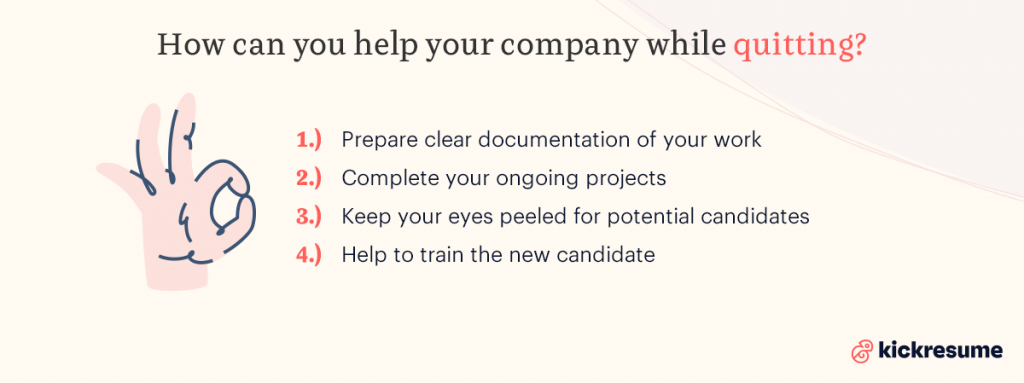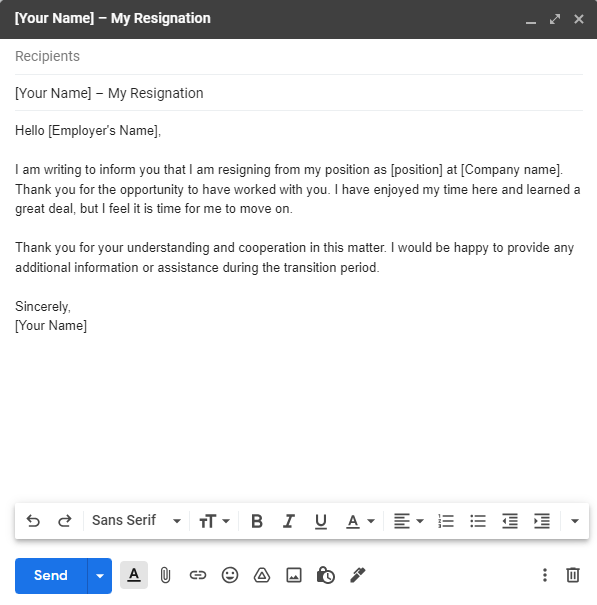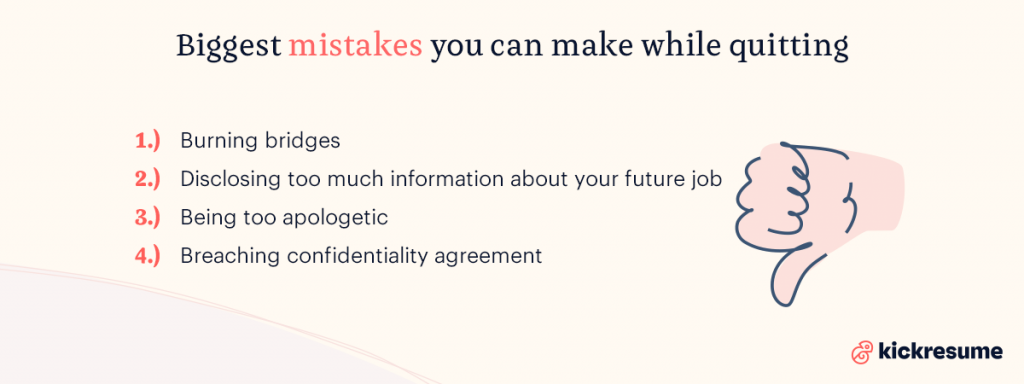How To Tell Your Boss That You Re Quitting

Telling your boss you're quitting is a critical career moment. Navigating this conversation effectively can preserve relationships and ensure a smooth transition.
This guide provides a clear, actionable framework for resigning professionally and minimizing potential complications.
Preparation is Key
Before uttering a single word, have your resignation letter prepared. Ensure it includes your last day of employment and a brief expression of gratitude.
Research your company’s policy on resignation. Understanding notice periods and procedures beforehand is crucial for avoiding any conflicts.
Be absolutely certain about your decision. Reversing course after announcing your departure can damage your reputation.
The Conversation Itself
Schedule a private, in-person meeting with your direct supervisor. Avoid delivering the news via email or phone call unless absolutely necessary, such as when working remotely.
Start by expressing your appreciation for the opportunities you’ve had. This sets a positive tone for a potentially difficult conversation.
Deliver your resignation clearly and concisely. State your intention to resign and specify your last day of employment.
"I am writing to inform you of my decision to resign from my position as [Your Position] effective [Your Last Day]."
Keep your explanation brief and professional. Avoid lengthy explanations or airing grievances. Focus on the positive aspects of your experience and your future goals.
Refrain from badmouthing the company or your colleagues. Maintain a professional demeanor, regardless of any past issues.
Be prepared for your boss's reaction. They may be surprised, disappointed, or even angry. Remain calm and respectful throughout the exchange.
Handling the Aftermath
Offer to assist with the transition process. This demonstrates your commitment to leaving on good terms and helping your team.
Document all handover procedures and knowledge. Create comprehensive documentation to ensure a smooth transition for your replacement.
Maintain professionalism until your last day. Continue to perform your duties to the best of your ability.
According to a 2023 survey by SHRM (Society for Human Resource Management), 67% of HR professionals believe that a well-managed resignation process is essential for maintaining employee morale.
Remember to update your LinkedIn profile only *after* you have informed your boss of your departure and agreed on a communication strategy.
Essential Considerations
Your resignation letter should be formal and polite. A template can be found online, but personalize it to reflect your specific situation.
Be prepared to answer questions about your future plans. However, you are not obligated to reveal all the details.
Avoid discussing your new job or salary with colleagues. This can create unnecessary tension and resentment.
Confirm your last paycheck details and benefits information with HR. Ensure you understand the process for receiving your final pay and any accrued vacation time.
Prepare a list of your responsibilities and current projects. This will help with the handover process.
Network and maintain connections with your colleagues. A positive departure can lead to valuable professional relationships in the future.
Next Steps
After your conversation, send a follow-up email confirming your resignation and last day. This provides a written record of your departure.
Continue to communicate openly and honestly with your manager and team. Address any concerns or questions promptly.
Remember that resigning is a natural part of career progression. Approaching the situation with professionalism and respect will ensure a positive outcome.


:max_bytes(150000):strip_icc()/how-to-tell-your-boss-you-re-quitting-your-job-2063035_FINAL-5b88037cc9e77c002cc6f46c.png)















